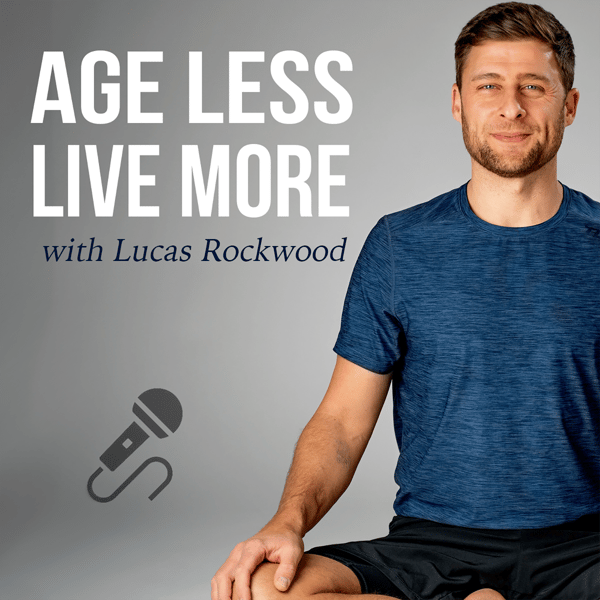499: The Truth about PTSD with Dr. Michael S. Scheeringa
Age Less / Live More
Lucas Rockwood
4.8 • 1.1K Ratings
🗓️ 19 January 2022
⏱️ 41 minutes
🧾️ Download transcript
Summary
Post Traumatic Stress Disorder first appeared in the DSM-3 in 1980, and was clinically defined as exposure to an actual or threat of death, serious injury, or sexual violence. Today, clinicians and pop health proponents have expanded the definition broadly, without supporting research, and the result is a catch-all term used to describe any past stress. Labeling mental health challenges is crucial for research, funding, and appropriate treatment, so on this week’s show, you’ll meet a doctor and researcher who will help us understand trauma based on science.
Learn
- Toxic stress theory and misunderstandings
- Why complex PTSD is not based on research
- How to advocate for your children or yourself if you have PTSD
- MDMA and psilocybin treatment options - the future?
Links
ABOUT OUR GUEST
Dr. Scheeringa is a practicing clinician and the principal investigator on five large, federally-funded research projects on PTSD in children and adolescents. He’s the author of, They'll Never Be the Same: A Parent's Guide to PTSD in Youth and a new book, The Trouble with Trauma.
Nutritional Tip of the Week
- Pig Fat or Beef Fat
Like the Show?
Leave us a Review on iTunes
Transcript
Click on a timestamp to play from that location
| 0:00.0 | I can't tell you how many times in the past year I've heard mental health professional |
| 0:09.0 | psychologists and psychiatrists on mainstream news media talking about the mental health crisis |
| 0:14.3 | that we're all very clearly in but coupled with that they also talk about the stigma around |
| 0:19.2 | mental health and how we need to break through that stigma and start to talk about this. |
| 0:23.6 | Mental health crisis is very real nobody argues with that the stigma is what I'd like to challenge. |
| 0:28.4 | I don't see a stigma I've never seen a stigma in my entire life right now when I open up social |
| 0:33.7 | media and scroll through the apps I will immediately find someone crying into their phone |
| 0:38.8 | sharing a very real crisis that's happening in their life and simultaneously sharing their |
| 0:44.0 | particular mental health diagnosis which might be BPD it might be ASD it might be ADHD it might be |
| 0:52.6 | general anxiety disorder and in most cases that diagnosis came from doctor google at 1am |
| 1:00.2 | why does this matter well I think it matters because we have limited resources as a society |
| 1:05.3 | locally government in schools limited resources in terms of mental health practitioners limited |
| 1:11.2 | resources in terms of research and funding extra curricular activities and support groups |
| 1:18.1 | and on the other side of that when it comes to treatment if somebody's walking into a doctor's |
| 1:23.1 | office a psychiatrist office with a preconceived notion it's very likely they'll guide their own care |
| 1:29.7 | and if people are getting misprescribed treatments and pharmaceutical drugs that's potentially |
| 1:37.3 | very life-altering circumstances and if everybody has anxiety disorder we don't have a treatment |
| 1:43.9 | for everybody but if an appropriate a number of people are getting diagnosed with what's |
| 1:49.4 | actually going on there's light at the end of the tunnel there's hope there's research there's |
| 1:53.0 | potential there's research there's drugs there's intervention there's you know cognitive |
| 1:57.7 | behavioral therapy all kinds of different things that could potentially be of help on this week's |
| 2:01.8 | podcast we'll be chatting about PTSD post-traumatic stress disorder in children in adolescents and |
... |
Please login to see the full transcript.
Disclaimer: The podcast and artwork embedded on this page are from Lucas Rockwood, and are the property of its owner and not affiliated with or endorsed by Tapesearch.
Generated transcripts are the property of Lucas Rockwood and are distributed freely under the Fair Use doctrine. Transcripts generated by Tapesearch are not guaranteed to be accurate.
Copyright © Tapesearch 2025.

